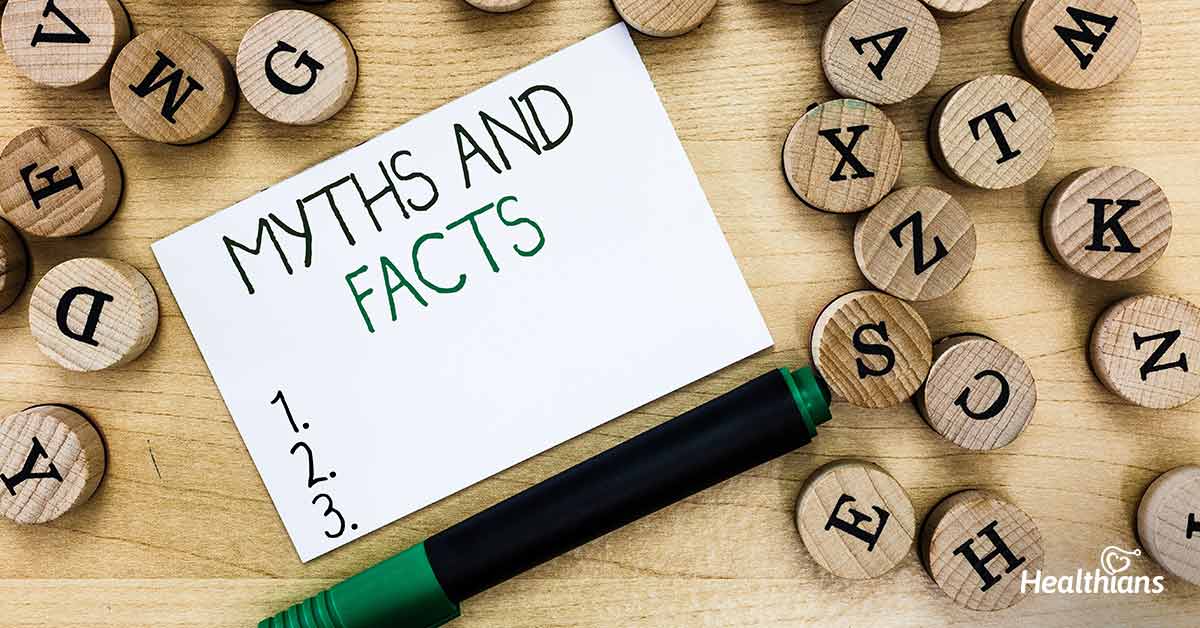Contributed by: Healthians Team
Some deeply held stigma and prejudice surrounding the mental health disorder generates unnecessary pain for persons who are depressed and those around them. Here’s how to deal with this debilitating condition more effectively—and avoid the crushing and dangerous isolation that comes with it.
Myth #1: Depression’s not a real medical illness
Fact:
Depression is a serious and complex health condition — and the leading cause of disability worldwide. This condition is no different than diabetes or heart disease in its debilitating ability to adversely impact the quality of life for individuals who suffer from it. Despite the fact that depression facts and statistics are readily available, it is still mistaken for everyday sadness. The medical world, however, recognizes depression as a disease and acknowledges its seriousness.
Myth #2: Depression affects only women
Fact:
Although depression is twice as common in women, it can affect men equally. However, it is likely that more men than women avoid talking about their feelings and seeking help than women. That’s why most men, their loved ones, and even their doctor may not recognize depression and it may go undiagnosed. The behavioral signs of depression manifest differently in men and women– and may cause men to lash out or engage in self-destructive behaviors.
Myth #3: If you have depression, its symptoms are obvious
Fact:
Depression is a multifaceted condition that can creep up slyly over a passage of time or it can suddenly slam into someone. Its symptoms aren’t always as obvious and left untreated, it prevents people from living life to its fullest — and takes a toll on families. Here are some depression symptoms to look for — some of which you might even find surprising — that you shouldn’t ignore.
- Increased fatigue and sleep problems
- Nervousness, restlessness, and/or anxiety
- Feelings of danger, panic, and hopelessness
- Changes in appetite and weight
- Uncontrollable emotions
- Loss of interest in favorite activities
- Unexplained physical symptoms
- Crying spells and overwhelming despair
Myth #4: Depression will just go away on its own
Fact:
While depression may go away on its own for some people, this is not frequently the case. Most people who experience depression need proper treatment to get better. Depression symptoms can last for weeks, months, or even years without treatment. It may also lead to suicide. People with depression cannot just magically snap out of their depression any more than someone with diabetes or heart disease can. Utilizing support from loved ones and medical interventions is an essential part of beating depression. If you’re experiencing symptoms of depression that you can’t manage on your, it is recommended that you consult a doctor. For mild to moderate depression, your doctor may prescribe a variety of treatments or recommend a combination of:
- Medication
- Psychotherapy
- Medical procedures
- Alternative therapies
- Lifestyle changes
- Supportive counseling
Myth #5: Depression is a sign of weakness or a deficit in one’s character
Fact:
Depression is seen as a weakness or vulnerability. But that’s not true. Depression is not a weakness or defect. It’s important to remember that depression is actually a medical disorder caused by a combination of a biological predisposition and environmental stress—and it’s a real illness.
Conclusion
Depression is a serious mental condition but is often unrecognized and undiagnosed. When left untreated, it leads to a high rate of morbidity and mortality. Most patients suffering from depression are not even aware of it until the effects of depression become overwhelmingly painful. Patients with depression, as well as their family and friends, face great challenges. The lack of healthy coping skills and social support, along with the fear of ridicule, tends to stop them from seeking help or even believing that there is a life beyond depression. These patients and their families can benefit from compassionate care, important information, mental monitoring, social support, reassurance, and medications.




